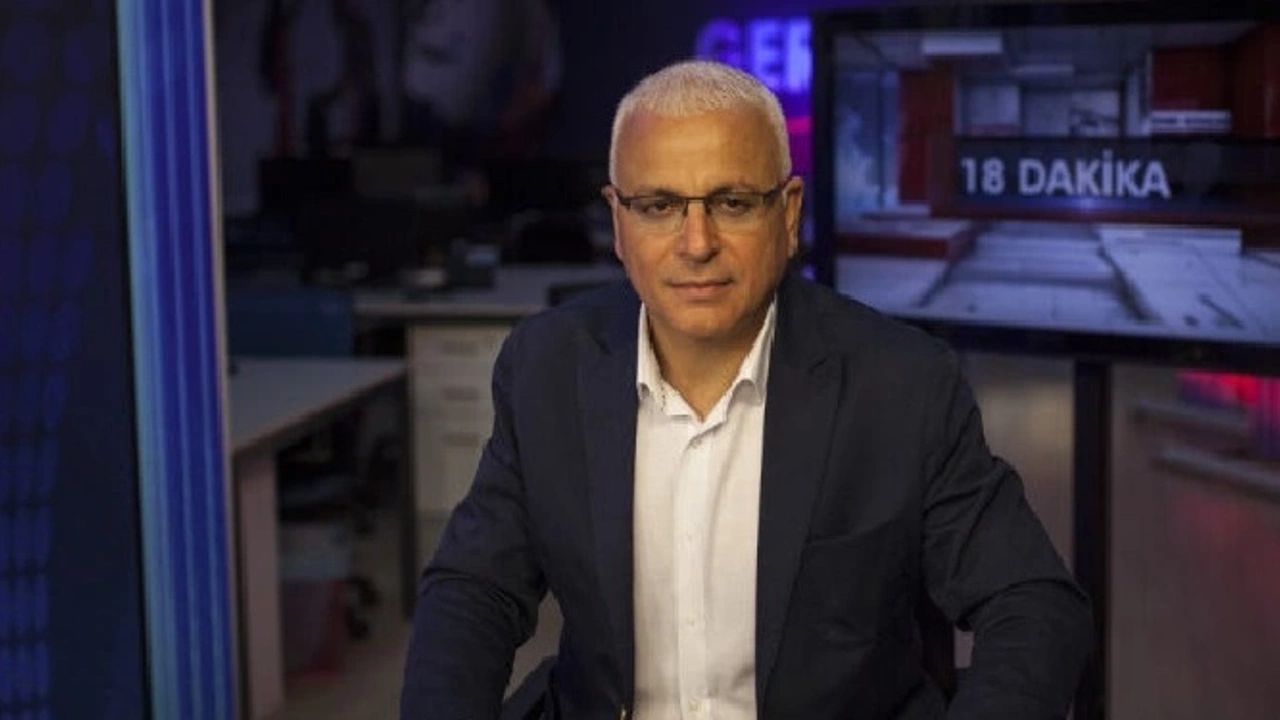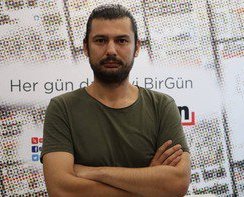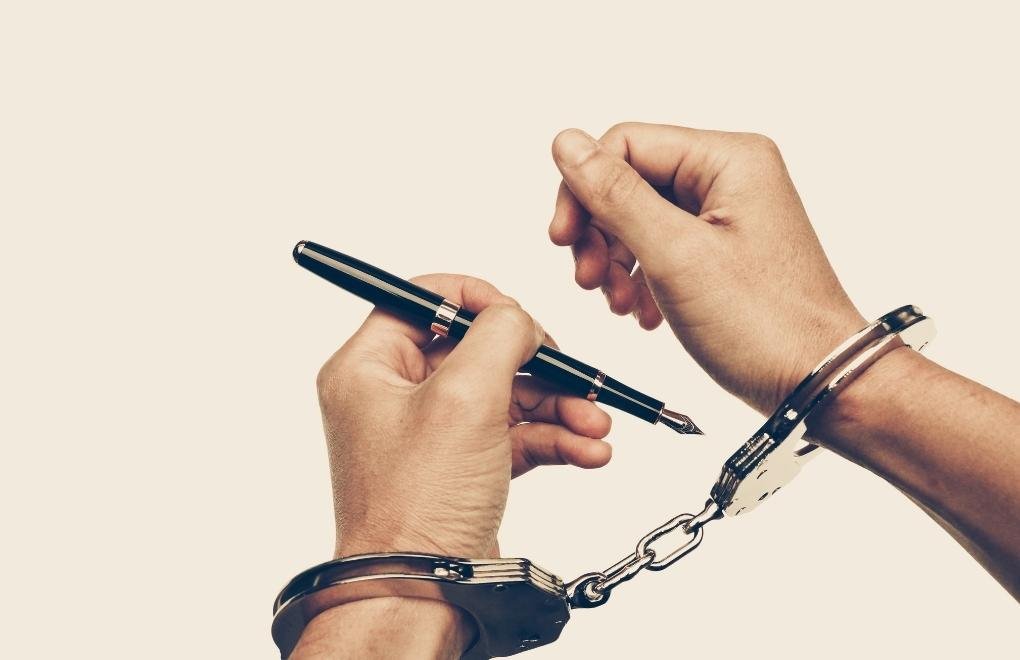Click to read the article in Turkish
Turkey has left behind the elections which were held on May 14, and May 28. As also expressed by the OSCE and European Council delegations and journalism organizations, it was demonstrated that the elections cannot be held in a fair, impartial and transparent way with the media structure that is 85 percent under the control of the government.
Following the elections, the attack to journalist Sinan Aygül who reported a corruption case in Tatvan and the arresting of TELE1 executive editor Merdan Yanardağ were denounced, not only in Turkey but at the international level, as clear signs of deterioration of media freedom.

TELE1 executive editor Merdan Yanardağ
20 global institutions have, in a joint letter, called on Spain that took over the Presidency of the Council of the European Union, to prioritize media freedom and human rights in their relations with the Turkish government. Indeed, Turkey ranked 165th in RSF's World Press Freedom Index this year within 180 countries, dropping 16 ranks in a year.
The BİA Media Monitoring Report covering the period April – June presents that Turkey which enters "countries with the highest number of imprisoned journalists" category once again after the attempted coup in 2016 has not ended using the Anti-Terror Legislation for political purposes. This is revealed especially in the massive arrests towards the Kurdish journalists, the arresting of Merdan Yanardağ, and the law cases against İsmail Saymaz, Canan Coşkun, Barış Pehlivan, and Mansur Çelik
Nine out of 196 suspects receive imprisonment sentences
According to the BİA Media Monitoring Report, at least 141 journalists or media representatives stood trial in the last three months for charges under the Turkish Criminal Law, the Anti-Terror Law, the Law no. 2911 on meetings and demonstrations, and the Law on Financing of Terrorism. Most of these cases were related to "being a member of an organization," or "making the propaganda of an organization." The law cases for 38 of these journalists were new ones, while 31 of them were representatives of the Kurdish media, against whom there were law cases for "being a member of an organization," and some of whom have been kept imprisoned for more than a year without even appearing at the court. While 32 journalists were sued for "insulting public officials" in this period, 23 were sued for "insulting the President." So in sum, the number of journalists who are suspects in various cases at the moment stand at 196 in the report covering the last three months.
Nine of these 196 journalists have been sentenced to a total of 8 years, 5 months and 10 days of imprisonment (with 6 years 9 months and 10 days of it postponed) and 4 thousand and 500 lira of judicial fine. Three journalists have been convicted for an allegation of "publishing personal data unlawfully," one, "insulting the President," one "insulting a public servant," one "humiliating religious feelings," one "insulting the state institutions," one "praising the guilty," and one "violating privacy of a workplace." The details of the report are as follows:
"Erdoğan" verdicts to 74 journalists in eight years
At least 23 journalists and cartoonists got involved in law cases for "insulting the President" between April – June (Sedef Kabaş, Barış Pehlivan, Ozan Alper Yurtoğlu, Hakkı Boltan, Ramazan Yurttapan, Haydar Ergül, Selçuk Uçar, İbrahim Aydın, Mustafa Kömüş, Gökay Başcan, Baransel Ağca, Julien Serignac, Gerard Biard, Laurent Sourisseau, "Alice", Ahmet Sever, Deniz Yücel, Levent Gültekin, Merdan Yanardağ, Hayko Bağdat, Erk Acarer, Rüstem Batum, Mehmet Baransu). A total of 107 years and 4 months of imprisonment is being asked for in these case files.

Gökay Başcan, political editor of Birgün
Levent Gültekin and Mehmet Baransu were acquitted in these cases while Gökay Başcan, the political editor of the Birgün daily newspaper, was given 11 months and 20 days of imprisonment which was postponed. Unfortunately, despite the recommendation by the Venice Commission that the article on "insulting the President" should be repealed, and the Vedat Şorli judgement of the ECtHR dated October 2021, the trials based on the article regarding "insulting the President" continue. The number of journalists sentenced to imprisonment or judicial fines in this scope since August 2014 when Erdoğan was elected the President has reached 74.
Law cases against 32 journalists for "insulting" by those in power
At least 32 journalists got involved in law cases for "insulting a public servant," "insulting" or "slander," between April – June. Sixteen of them are standing trial, with imprisonment sentences being requested, in files in which Mustafa Varank, the Minister of Industry and Technology of the period, Mustafa Doğan İnal, the ex-lawyer of President Erdoğan, Serhat Albayrak, the vice president of the Turkuaz Media Group, and Berat Albayrak, the son-in-law of the President are the complainants. While four journalists were acquitted from charges of "insulting a public servant," in this period, one was sentenced to 11 months and 20 days of imprisonment which was postponed.
At least four journalists and two newspapers got involved in a suit for damages, with a total of 1 million 70 thousand lira of compensation being requested. While the cases against BirGün and Evrensel daily newspapers were new the court has rejected the case that Selçuk Bayraktar, the son-in-law of President Erdoğan and the Technical Manager of the Baykar Defense Company opened against journalist Şirin Payzın, where 150 thousand lira of compensation was being requested.
236 online news and six posts by journalists face censorship
In the past three months, Penal Judgeships of Peace or the Access Providers Association have imposed access bans on at least 236 online news articles and six journalists' social media content that raised or criticized corruption, bribery, and favoritism allegations.
While "violation of personal rights" is a common reason for access restrictions, one of the issues that the Penal Court of Peace intervened in was the blocking of access to 180 news articles related to the management of the Ministry of Health. The access bans also prevented the reading of news about the discovery of the dead body of Abdülbaki Dakak, a 12-year-old boy found near an unauthorized religious school owned by the Semerkand Foundation in Şanlıurfa, and allegations of sexual abuse of a two-year-old child in Zonguldak.
Various content, including an article by Barış Terkoğlu, a columnist for the Cumhuriyet newspaper, which brought up allegations of certain investigation files regarding FETÖ being closed through instructions, and news related to the examination of a corruption complaint involving Bilal Erdoğan, the son of President Erdoğan, by Reuters News Agency, as well as many other news reports about entrepreneur Fettah Tamince published between 2015 and 2023, were banned during this period.
Outburst against the chair of RTÜK
The Radio and Television Supreme Council (RTÜK) also made decisions in the past three months that disregarded the impartiality of television broadcasting. The total value of the 12 administrative fines imposed by the Council on TV outlets amounted to 2,184,984 lira. Additionally, the outlets received five broadcast suspension penalties.
When RTÜK Chair Ebubekir Şahin announced the initiation of an investigation into Halk TV, Tele1, KRT, TV5, Flash News, and SZC TV, accusing them of "attempting to belittle the people," RTÜK member İlhan Taşçı, selected to council membership from the CHP quota, harshly reacted by saying, "Mr. Ebubekir Şahin, you have already made up your mind!"
Constitutional Court remains silent, applications were made to ECtHR
During the period of April to June, no decision focusing on journalistic rights was given by the Constitutional Court. In this period, the application made by the family of journalist Nazım Babaoğlu in 2018, regarding his disappearance after being detained in Siverek district of Şanlıurfa on March 12, 1994, was deemed inadmissible by the Constitutional Court on the grounds of not exhausting the available legal remedies concerning the allegations of "violation of the right to life."
On the other hand, the European Court of Human Rights (ECtHR) ordered Turkey to pay 18,000 euros in compensation, stating that there was "reasonable suspicion" for the arrest of Hidayet Karaca, the chair of the Samanyolu Broadcasting Group, within the scope of the "Tahşiye Operations," but the decisions prolonging ther arrest were not reasonable.
While the number of decisions regarding "freedom of expression" from the ECHR has significantly decreased, there is no interruption in applications due to ongoing violations of journalist rights in Turkey. Following the operation conducted on June 8, 2022, in Diyarbakır, where 16 journalists, 8 of whom are currently detained, were arrested, they applied to the ECHR, arguing that their freedom and security rights were violated.
Seeking justice is not easy for journalists!
In the past three months, at least eight journalists (Deniz Önal, Yakup Önal, Gökhan Biçici, Yavuz Selim Demirağ, etc.) in Tekirdağ, Elazığ, Van, Ankara, and İstanbul have been actively striving for a punishment for the violence they have faced. These efforts, which also indicate obstacles to seeking justice, can target the journalists who are the "complainants" themselves. While the "complainant" journalist İdris Yılmaz was sentenced to prison in Van, the complaints of AFP photojournalist Bülent Kılıç and Sibel Hürtaş were rendered ineffective, and the police's complaint turned into a case.
The court is conducting a trial in absentia against Oğuz Demir, who is alleged to have placed a bomb in journalist Uğur Mumcu's car, causing his death on January 24, 1993. Interpol has allegedly been searching for Oğuz Demir for 30 years, but he has not been found, highlighting the insurmountable barriers in the investigation of political assassinations.
Journalists Kyriakos Finas, Victoras Antonopoulos, and Konstantinos Zilos from Greece filed a criminal complaint through lawyers from the Media and Law Studies Association (MLSA) in relation to their obstruction and the destruction of their cameras and equipment by personnel from the Presidency of Religious Affairs during their coverage in the earthquake-stricken region in February.
Five job terminations in three months
During the period of April to June, at least five journalists were forced to leave their positions or had to resign due to disagreements related to the editorial processes or the publication policy. The outlets involved in dismissals or departures during this period included Cumhuriyet, TV100, Halk TV, and HaberTürk.
(EÖ/PE/VK)











